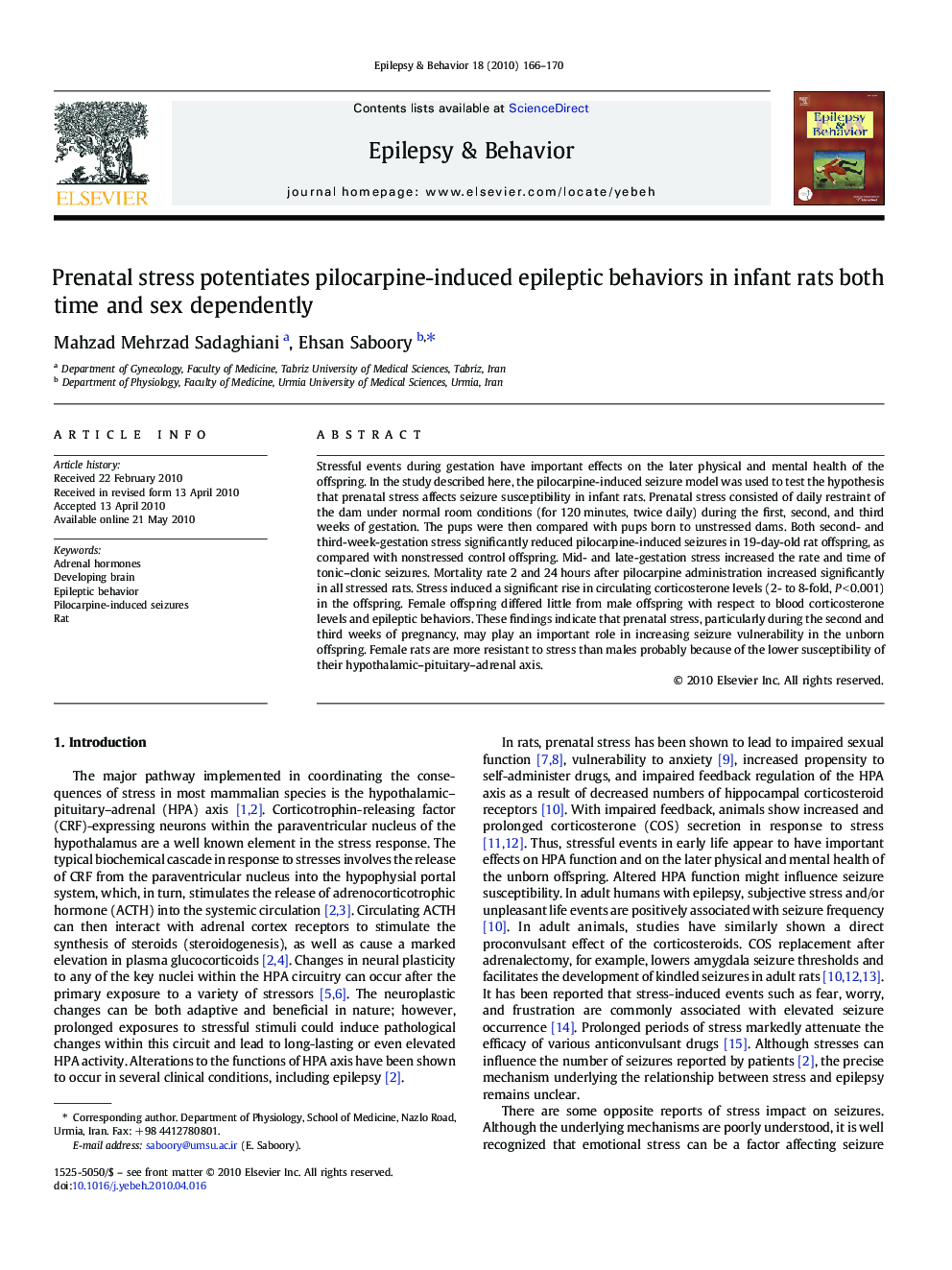| Article ID | Journal | Published Year | Pages | File Type |
|---|---|---|---|---|
| 3050435 | Epilepsy & Behavior | 2010 | 5 Pages |
Stressful events during gestation have important effects on the later physical and mental health of the offspring. In the study described here, the pilocarpine-induced seizure model was used to test the hypothesis that prenatal stress affects seizure susceptibility in infant rats. Prenatal stress consisted of daily restraint of the dam under normal room conditions (for 120 minutes, twice daily) during the first, second, and third weeks of gestation. The pups were then compared with pups born to unstressed dams. Both second- and third-week-gestation stress significantly reduced pilocarpine-induced seizures in 19-day-old rat offspring, as compared with nonstressed control offspring. Mid- and late-gestation stress increased the rate and time of tonic–clonic seizures. Mortality rate 2 and 24 hours after pilocarpine administration increased significantly in all stressed rats. Stress induced a significant rise in circulating corticosterone levels (2- to 8-fold, P < 0.001) in the offspring. Female offspring differed little from male offspring with respect to blood corticosterone levels and epileptic behaviors. These findings indicate that prenatal stress, particularly during the second and third weeks of pregnancy, may play an important role in increasing seizure vulnerability in the unborn offspring. Female rats are more resistant to stress than males probably because of the lower susceptibility of their hypothalamic–pituitary–adrenal axis.
